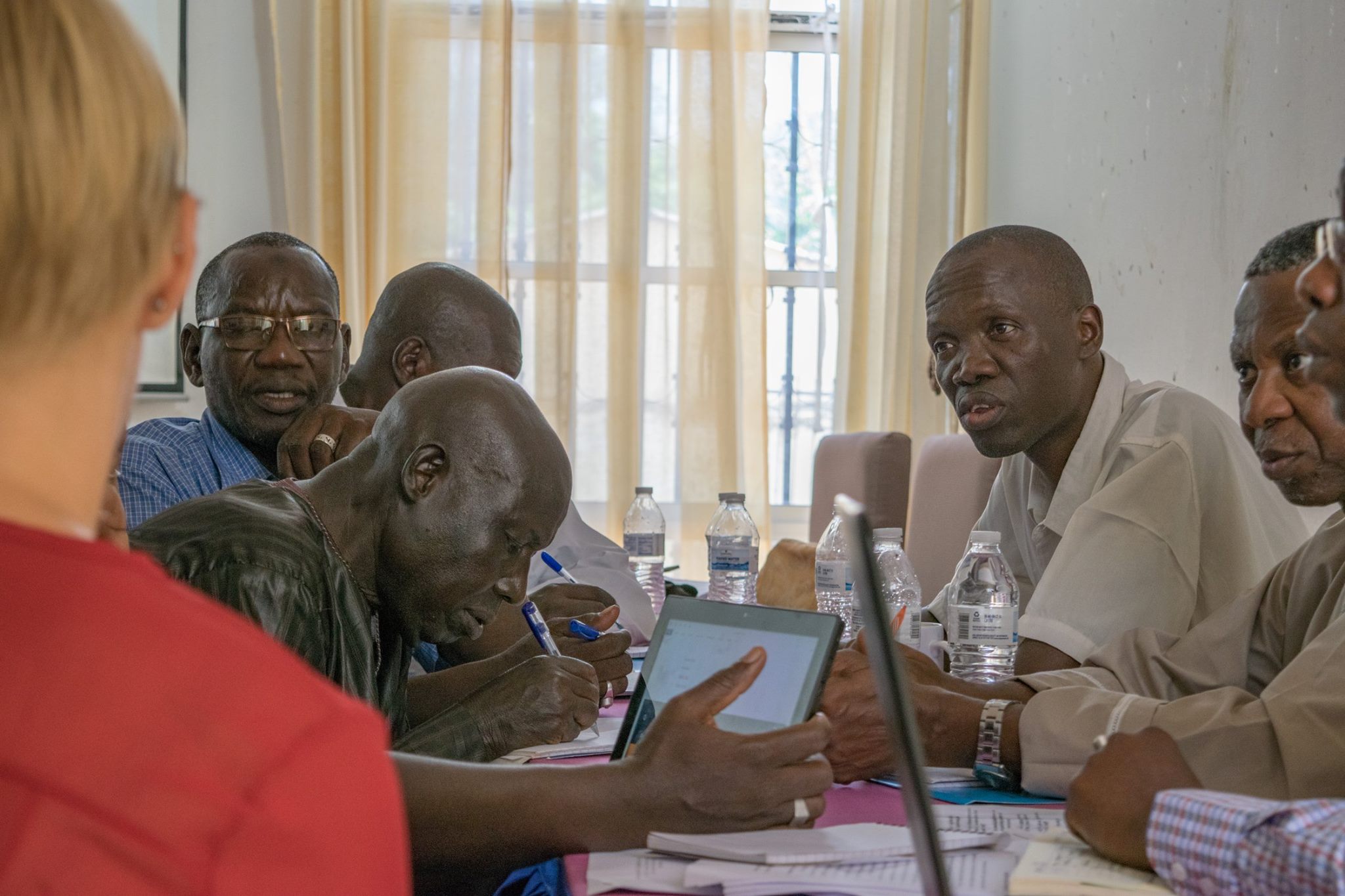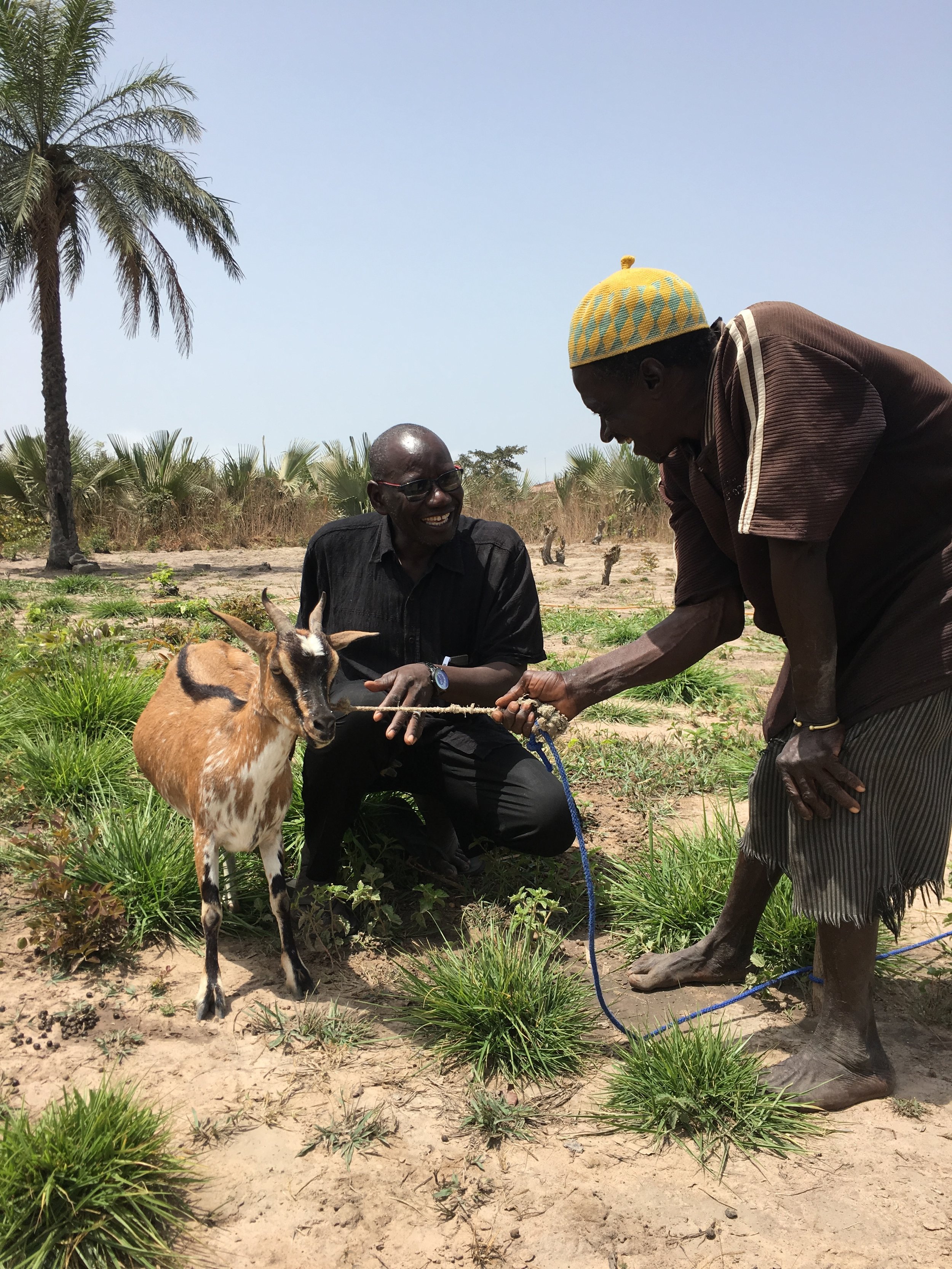Goat Dairy Farm Project
Location: Sanyang, The Gambia
Background
Global Food Security
By the year 2050, there will be 9.7 billion people on planet earth. Currently, we're failing to feed just over 7 billion. Poor nutrition causes 45% of global childhood deaths under the age of 5 and perpetuates the cycle of poverty by undermining societies’ productivity. Food insecurity is an enormous barrier to economic growth and development, as malnutrition can cost nations as much as 16% of their annual gross domestic product. Investing in effective nutrition interventions therefore stimulates economies, while investments in other areas of need do not proportionately benefit the nutritional status of a population. Chronic protein and nutrient deficiencies often manifest as disease processes such as stunting, wasting, and low infant birthweights rather than overt starvation. A dietary increase in animal sourced foods provides much-needed protein as well as micronutrients such as Vitamin A, B12, iron, choline and zinc. Increasing animal protein accessibility through livestock-based interventions is therefore an ideal solution to these “hidden hunger” deficiencies plaguing much of the developing world.
To meet the ever-growing need for food while preserving the ecosystems we depend upon, humanity will need to innovate. Livestock systems must increase yield, decrease their environmental footprint, and make products accessible to those who need them most. Gambia Goat Dairy (GGD) will be the first commercial goat milking facility in The Gambia. We aim to achieve food security through environmentally sustainable interventions. We prioritize animal welfare and act on community-defined need as we work to solve one of the world's toughest problems.
The Gambia
The Gambia is the smallest country in mainland Africa. Over one third of The Gambia’s population lives below the international poverty line, and 25% of the children of The Gambia under the age of 5 are either severely or moderately stunted due to undernourishment. While animal-sourced foods unequivocally benefit childhood nutrition and development, The Gambia’s livestock generally yield 30 times less than their counterparts in more developed countries. This disparity is linked to antiquated agricultural practices and infrastructure, poor livestock management strategies, and lack of access to veterinary care in the developing world. The majority of dairy products available in The Gambia are therefore imported from foreign producers and are too expensive for the most nutritionally vulnerable populations to access. Additionally, current means of livestock rearing in The Gambia are environmentally costly due to extensive land use and ecological damage by roaming herds that grow in size every year. The Gambia National Nutrition Agency and Ministry of Agriculture prioritize the transition towards highly productive sustainable livestock systems as an essential process in achieving affordable food security, creating wealth amongst smallholder farmers, reducing import reliance, and preserving its natural environment.
Objectives
To improve maternal and child health
To empower women in agriculture and business
To enable Gambian youth as leaders and educators
To improve The Gambia’s economic sovereignty
To reduce the environmental impact of agriculture
Key Components - The Three Phase Plan
Phase I – Pilot Project
GGD’s pilot project is the creation of a small-scale goat dairy farm in The Gambia. It is an evidence-based start-up initiative that will become a self-funded nonprofit entity 5 years after inception. By this time, our goal is to provide 108,000 servings of protein per year to undernourished populations and generate a surplus of USD $20,000 per year from the ongoing business operation.
GGD will implement a sustainable livestock system that combines modern agricultural strategies with equipment and practices tailored to the unique environment of West Africa. This will maximize the productivity of endemic goat breeds in a replicable dairy model that can be easily adapted to operations elsewhere in The Gambia and in neighboring countries. The pilot project will test sales strategies that target multiple market segments, ensuring that high quality protein products reach the populations that need them most. Throughout this phase, GGD will work closely with local smallholder farmers to leverage community assets and develop robust supply chains to achieve proof of concept. Social impact and agricultural tactics will be continually assessed to direct decision-making and ensure accountability and project efficacy. These findings will contribute greatly to the current body of literature addressing strategies for livestock development initiatives and global food security.
Phase II – Gambian Extension Service Establishment
In this phase, GGD will prioritize outreach and inclusion of Gambian smallholder dairy farmers. We will adapt our pilot project findings to fit the needs of smallholder producers and prescribe GGD’s techniques to their herds.
GGD’s Extension Service will engage in husbandry education and smallholder farm financing programs, explore options in bovine production systems, train and employ veterinary paraprofessionals, design crop residue exchange agreements, build pasteurization cooperatives, and research and plan more extensive supply and value chains. It involves extensive, ongoing research into livestock productivity, outreach strategies, venture scaling, nutritional impact, demand, and product development. GGD’s Extension service lays the groundwork necessary for the success of Phase III.
Phase III – Dairy Industry Establishment
Upon widespread adoption of GGD’s production techniques, The Gambia’s dairy farms will be poised to progress towards the establishment of larger dairy operations that achieve economies of scale.
With a network of highly productive Gambian dairy farmers generating a steady supply of dairy, GGD will transition from its role as a producer to that of a processing and distribution center. As a national dairy cooperative, GGD will purchase dairy products from Gambian farmers for processing and product distribution. GGD’s ultimate goal is to provide The Gambia’s children with 25% of their total protein requirement by creating a stable domestic dairy sector.








